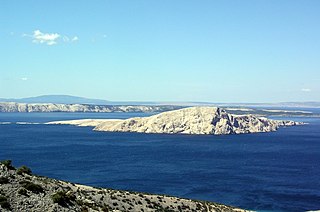
Kimitake Hiraoka, also known as Yukio Mishima, was a Japanese author, poet, playwright, actor, model, Shintoist, nationalist, and founder of the Tatenokai. Mishima is considered one of the most important writers of the 20th century. He was considered for the Nobel Prize in Literature in 1968, but the award went to his countryman and benefactor Yasunari Kawabata. His works include the novels Confessions of a Mask and The Temple of the Golden Pavilion, and the autobiographical essay Sun and Steel. Mishima's work is characterized by "its luxurious vocabulary and decadent metaphors, its fusion of traditional Japanese and modern Western literary styles, and its obsessive assertions of the unity of beauty, eroticism and death", according to author Andrew Rankin.
Exile is either an entity who is, or the state of being, away from one's home while being explicitly refused permission to return.
Death is the irreversible cessation of all biological functions that sustain an organism.
Isle of the Dead may refer to:
Kane or KANE may refer to:
Doctor or The Doctor may refer to:

Goli Otok is a barren, uninhabited island that was the site of a political prison which was in use when Croatia was part of Yugoslavia. The prison was in operation between 1949 and 1989.

Mishima: A Life in Four Chapters is a 1985 biographical drama film based on the life and work of Japanese writer Yukio Mishima, directed by Paul Schrader from a screenplay by his brother Leonard and Leonard's wife Chieko Schrader from a story by Paul Schrader and Jun Shiragi. The film interweaves episodes from Mishima's life with dramatizations of segments from his books The Temple of the Golden Pavilion, Kyoko's House, and Runaway Horses. Francis Ford Coppola and George Lucas were executive producers of the film, which has a musical score composed by Philip Glass and production design by Eiko Ishioka.
The Crusades were a series of religious wars sanctioned by the Latin Church in the medieval period. Crusading movement is about the ideology and institutions associated with crusading.
The dog is a domesticated canid species, Canis familiaris.
X-rays are a form of electromagnetic radiation or radiographs: photographs made with X-rays.

The Sanctum Sanctorum is a fictional building appearing in American comic books published by Marvel Comics, as the residence and headquarters of Doctor Strange. Created by Stan Lee and Steve Ditko, the building first appeared in Strange Tales #110. It is located at 177A Bleecker Street in New York City's Greenwich Village neighborhood. This is a reference to the address of an apartment once shared by writers Roy Thomas and Gary Friedrich.
Merchant of Death, death merchants, or variations may refer to:
Island of the Dead may refer to:
Bing Bong or Bingbong may refer to:

The Frolic of the Beasts is a 1961 novel by Yukio Mishima. It is considered a minor work from Mishima's middle period. Drawing inspiration from Noh plays, specifically the 14th-century Motomezuka, the novel centers on a tragic love triangle depraved by adultery and violence. It is a short novel in length and has a nonlinear narrative structure. The novel was first serialised thirteen times in the weekly magazine Shukan Shincho between 12 June 1961 and 4 September 1961. It was published in hardcover format by Shinchosha on 30 September 1961. It was published in paperback by Shincho Bunko on 10 July 1966. The novel was translated into Italian by Lydia Origlia and published by Feltrinelli in September 1983. The novel was translated into English by Andrew Clare and published in paperback format in the United States and Canada by Vintage International on 27 November 2018. Clare's translation was later published in paperback in the United Kingdom by Penguin Modern Classics on 4 April 2019. The English translation was re-released in the United Kingdom on 2 November 2023 as part of Penguin's Japanese Classics series.
Death Island is the nickname of Shark Island, Namibia, where a prisoner camp was located.
This page is based on this
Wikipedia article Text is available under the
CC BY-SA 4.0 license; additional terms may apply.
Images, videos and audio are available under their respective licenses.




